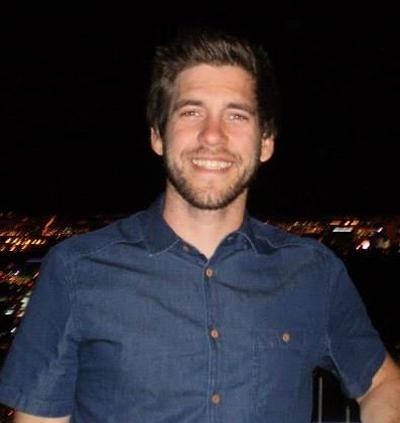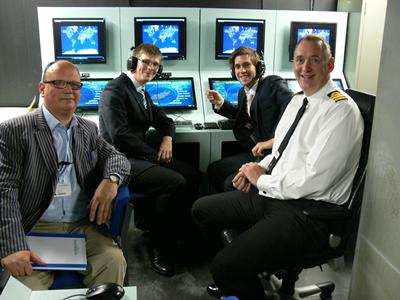Dr Aaron P. J. Roberts BSc (Hons), PhD
Visiting Research Fellow

Dr Aaron P. J. Roberts is a Visiting Research Fellow within Engineering and Physical Sciences at the University of Southampton.
Current role
Aaron has been a member of the Transportation Research Group since October 2013; he joined as a Research Fellow working on the EU funded ALICIA (All Conditions Operations and Innovative Cockpit Infrastructure) project. Aaron assisted with the final stages of the ALICA project which utilized Human Factors methods to design and evaluate future flight deck technologies. In April 2014 Aaron began working on the ComTET (Command Team Experimental Test-bed) project funded by the Ministry of Defence. The aim of this project is to examine current operational capacities of submarine command teams and develop a test bed to undertake repeatable scientific experiments that systematically evaluate where performance benefits may be gained in future multi-role submarine platforms. Aaron is particularly interested in using psycho-physiological techniques for the assessment of workload and augmented cognition in socio-technical systems. Between April and September 2014 Aaron was a key member of the team who designed and built a full scale mid-fidelity submarine command team simulator at the University of Southampton to mimic the currently operational ASTUTE submarine.
History
Aaron developed a keen interest in forensic and applied cognitive at the University of Liverpool graduating in 2007 with a BSc in Psychology. The projects worked on throughout this time involved examining how individuals make critical decisions in situations with high levels of uncertainty and increased processing demands coupled with decreased processing capacity. In September 2007 Aaron attained the position of project manager for a rehabilitation programme which used novel and innovative approaches to support and facilitate the integration of prolific offenders and substance abusers into the local community. Despite gaining valuable experience as a practitioner and engaging with clinical and social psychology Aaron actively pursued a research career in applied cognitive psychology. In 2008 Aaron began a PhD at the University of Liverpool, at the Centre for Critical Incident Decision making Research. In this time Aaron was granted unprecedented access to a Police Firearms department in the UK. He attended over 200 tactical training days of Authorised Firearms officers, measuring the physiological arousal and cognitive capacity of Officers as they engaged in highly immersive lethal threat training scenarios. This work has applications to forensic psychology; in particular critical incident decision making and policy making/training. The work has wider applications to clinical psychology, in particular the understanding of anxiety based disorders. Aaron has extensive experience in the design of simulations examining critical incident decision making, police tactical (firearms) decision making and submariner command team operations.
Aaron has a keen interest in neuro-psychology and neuroscience, focusing on working memory, decision making and impulsivity. Aaron was keen to gain experience with the use of methods employed within such disciplines (e.g. neuro-imaging) and work in a true laboratory. After being awarded his PhD in 2012 titled ‘Examining the working memory function of Authorised Firearms Officers during simulated armed confrontations’ Aaron attained the position of research technician at the University of Plymouth. In this role Aaron gained experience with the design, planning and running of controlled laboratory experiments using Electroencephalogram amongst other tools. The project was funded by Marie Curie and was theoretically focused, examining embodied cognitive processes; however Aaron never lost sight of the applied value of such research, in particular how the embodied properties of objects (e.g. weapons) might impact both positively and negative upon the decision making of professionals (e.g. police officers).
Throughout his career to date Aaron has co-supervised the dissertation projects of undergraduate and master’s students in and is currently a PhD co-supervisor. He has also been invited to a variety of University’s in the United Kingdom as a guest lecturer presenting his novel work in the field of police tactical decision making.
